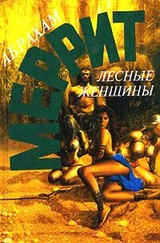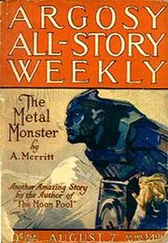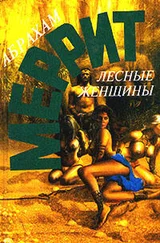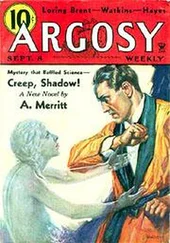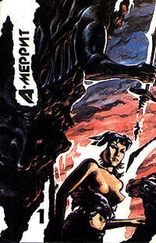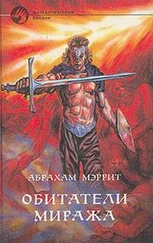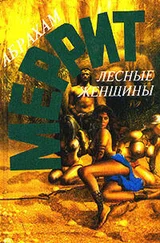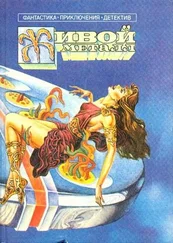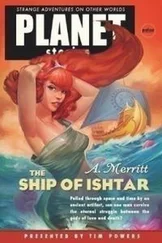Абрахам Меррит - Dwellers in the Mirage
Здесь есть возможность читать онлайн «Абрахам Меррит - Dwellers in the Mirage» весь текст электронной книги совершенно бесплатно (целиком полную версию без сокращений). В некоторых случаях можно слушать аудио, скачать через торрент в формате fb2 и присутствует краткое содержание. Год выпуска: 2017, Издательство: epubBooks Classics, Жанр: Фэнтези, на английском языке. Описание произведения, (предисловие) а так же отзывы посетителей доступны на портале библиотеки ЛибКат.
- Название:Dwellers in the Mirage
- Автор:
- Издательство:epubBooks Classics
- Жанр:
- Год:2017
- ISBN:нет данных
- Рейтинг книги:5 / 5. Голосов: 1
-
Избранное:Добавить в избранное
- Отзывы:
-
Ваша оценка:
- 100
- 1
- 2
- 3
- 4
- 5
Dwellers in the Mirage: краткое содержание, описание и аннотация
Предлагаем к чтению аннотацию, описание, краткое содержание или предисловие (зависит от того, что написал сам автор книги «Dwellers in the Mirage»). Если вы не нашли необходимую информацию о книге — напишите в комментариях, мы постараемся отыскать её.
Dwellers in the Mirage — читать онлайн бесплатно полную книгу (весь текст) целиком
Ниже представлен текст книги, разбитый по страницам. Система сохранения места последней прочитанной страницы, позволяет с удобством читать онлайн бесплатно книгу «Dwellers in the Mirage», без необходимости каждый раз заново искать на чём Вы остановились. Поставьте закладку, и сможете в любой момент перейти на страницу, на которой закончили чтение.
Интервал:
Закладка:
"It was Tibur, Lord."
"He tried to kill me…Why did he not finish?"
"Never yet has Tibur's left hand failed to deal death. He thinks it cannot fail. He saw you fall—he thought you dead."
"And death missed me by a hair's–breadth. And would not, had not someone hurled me aside. Was that you, Dara?"
"It was I, Dwayanu. I saw his hand dip into his girdle, knew what was coming. I threw myself at your knees—so he could not see me."
"Why, because you fear Tibur?"
"No—because I wanted him to believe he did not miss."
"Why?"
"So that you would have better chance to kill Tibur, Lord. Your strength was ebbing with your friend's life."
I looked sharply at this bold–eyed captain of mine. How much did she know? Well, time later to find that out. I looked at the pyre. It was nearly complete.
"What was it he threw, Dara?"
She drew from her girdle a curious weapon, one whose like I had never seen. Its end was top–shaped, pointed like a dagger and with four razor–edged ribs on its sides. It had an eight–inch metal haft, round, like the haft of a diminutive javelin. It weighed about five pounds. It was of some metal I did not recognize—denser, harder than the finest of tempered steel. It was, in effect, a casting knife. But no mail could turn aside that adamantine point when hurled with the strength of one like the Smith. Dara took it from me, and pulled the short shaft. Instantly the edged ribs flew open, like flanges. The end of each was shaped like an inverted barb. A devilish tool, if I ever saw one. Once embedded, there was no way to get it out except cutting, and any pull would release the flanges, hooking them at the same time into the flesh. I took it back from Dara, and placed it in my own girdle. If I had had any doubts about what I was going to do to Tibur—I had none now.
The pyre was finished. I walked over to Jim, and laid him on it. I kissed him on the eyes, and put a sword in his dead hand. I stripped the room of its rich tapestries and draped them over him. I struck flint and set flame to the pyre. The wood was dry and resinous, and burned swiftly. I watched the flames creep up and up until smoke and fire made a canopy over him.
Then dry–eyed, but with death in my heart. I walked out of that house and among my soldiers.
Sirk had fallen and its sack was on. Smoke was rising everywhere from the looted homes. A detachment of soldiers marched by, herding along some two–score prisoners—women, all of them, and little children; some bore the marks of wounds. And then I saw that among those whom I had taken for children were a handful of the golden pygmies. At sight of me the soldiers halted, stood rigid, staring at me unbelievingly.
Suddenly one cried out…"Dwayanu! Dwayanu lives!"…They raised their swords in salute, and from them came a shout…"Dwayanu!"
I beckoned their captain.
"Did you think Dwayanu dead then?"
"So ran the tale among us, Lord."
"And did this tale also tell how I was slain?"
She hesitated.
"There were some who said it was by the Lord Tibur…by accident… that he had made cast at Sirk's leader who was menacing you…and that you were struck instead…and that your body had been borne away by those of Sirk…I do not know…"
"Enough, soldier. Go on to Karak with the captives. Do not loiter, and do not speak of seeing me. It is a command. For a while I let the tale stand."
They glanced at each other, oddly, saluted, and went on. The yellow eyes of the pygmies, filled with a venomous hatred, never left me until they had passed out of range. I waited, thinking. So that was to be the story! Hai! But they had fear at their elbows or they would not have troubled to spread that tale of accident! Suddenly I made decision. No use to wander over Sirk searching for Tibur. Folly to be seen, and have the counter–tale that Dwayanu lived be borne to the ears of Tibur and Lur! They should come to me—unknowing.
There was only one way out of Sirk, and that by the bridge. It was there I would await them. I turned to Dara.
"We go to the bridge, but not by this road. We take the lanes until we reach the cliffs."
They wheeled their horses, and for the first time I realized that all this little troop of mine were mounted. And for the first time I realized that all were of my own guard, and that many of them had been foot–soldiers, yet these, too, were riding, and that upon a score of saddles were the colours of nobles who had followed me and the Witch–woman and Tibur through the gap of Sirk. It was Naral who, reading my perplexity, spoke, half–impudently as always:
"These are your most faithful, Dwayanu! The horses were idle—or a few we made so. For your better shield should Tibur—make mistake again."
I said nothing to that until we had gone around the burning house and were under cover of one of the lanes. Then I spoke to them:
"Naral—Dara—let us talk apart for a moment."
And when we had drawn a little away from the others, I said:
"To you two I owe my life—most of all to you, Dara. All that I can give you is yours for the asking. All I ask of you is—truth."
"Dwayanu—you shall have it."
"Why did Tibur want to kill me?"
Naral said, dryly:
"The Smith was not the only one who wanted you killed, Dwayanu."
I knew that, but I wanted to hear it from them.
"Who else, Naral?"
"Lur—and most of the nobles."
"But why? Had I not opened Sirk for them?"
"You were becoming too strong, Dwayanu. It is not in Lur or Tibur to take second place—or third…or maybe no place."
"But they had opportunity before—"
"But you had not taken Sirk for them," said Dara.
Naral said, resentfully:
"Dwayanu, you play with us. You know as well as we—better—what the reason was. You came here with that friend we have just left on his fire couch. All knew it. If you were to die—so must he die. He must not live, perhaps to escape and bring others into this place—for I know, as some others do, that there is life beyond here and that Khalk'ru does not reign supreme, as the nobles tell us. Well—here together are you and this friend of yours. And not only you two, but also the dark girl of the Rrrllya, whose death or capture might break the spirit of the little folk and put them under Karak's yoke. The three of you—together! Why, Dwayanu—it was the one place and the one time to strike! And Lur and Tibur did—and killed your friend, and think they have killed you, and have taken the dark girl."
"And if I kill Tibur, Naral?"
"Then there will be fighting. And you must guard yourself well, for the nobles hate you, Dwayanu. They have been told you are against the old customs—mean to debase them, and raise the people. Intend even to end the Sacrifices…"
She glanced at me, slyly.
"And if that were true?"
"You have most of the soldiers with you now, Dwayanu. If it were true you would also have most of the people. But Tibur has his friends—even among the soldiers. And Lur is no weakling."
She twitched up her horse's head, viciously.
"Better kill Lur, too, while you're in the mood, Dwayanu!"
I made no answer to that. We trotted through the lanes, not speaking again. Everywhere were dead, and gutted houses. We came out of the city, and rode over the narrow plain to the gap between the cliffs. There happened to be none on the open road just then; so we entered the gap unnoticed. We passed through it out into the square behind the fortress. There were soldiers here, in plenty, and groups of captives. I rode in the centre of my troop, bent over the neck of my horse. Dara had roughly bandaged my head. The bandages and cap–helmet I had picked up hid my yellow hair. There was much confusion, and I passed through unnoticed. I rode straight to the door of the tower behind which we had lurked when Karak stormed the bridge. I slipped in with my horse, half–closed the door. My women grouped themselves outside. They were not likely to be challenged. I settled down to wait for Tibur.
Читать дальшеИнтервал:
Закладка:
Похожие книги на «Dwellers in the Mirage»
Представляем Вашему вниманию похожие книги на «Dwellers in the Mirage» списком для выбора. Мы отобрали схожую по названию и смыслу литературу в надежде предоставить читателям больше вариантов отыскать новые, интересные, ещё непрочитанные произведения.
Обсуждение, отзывы о книге «Dwellers in the Mirage» и просто собственные мнения читателей. Оставьте ваши комментарии, напишите, что Вы думаете о произведении, его смысле или главных героях. Укажите что конкретно понравилось, а что нет, и почему Вы так считаете.
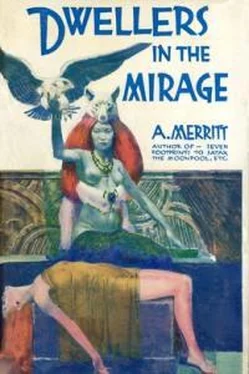
![Абрахам Меррит - Лунный бассейн [Лунная заводь]](/books/20623/abraham-merrit-lunnyj-bassejn-lunnaya-zavod-thumb.webp)
